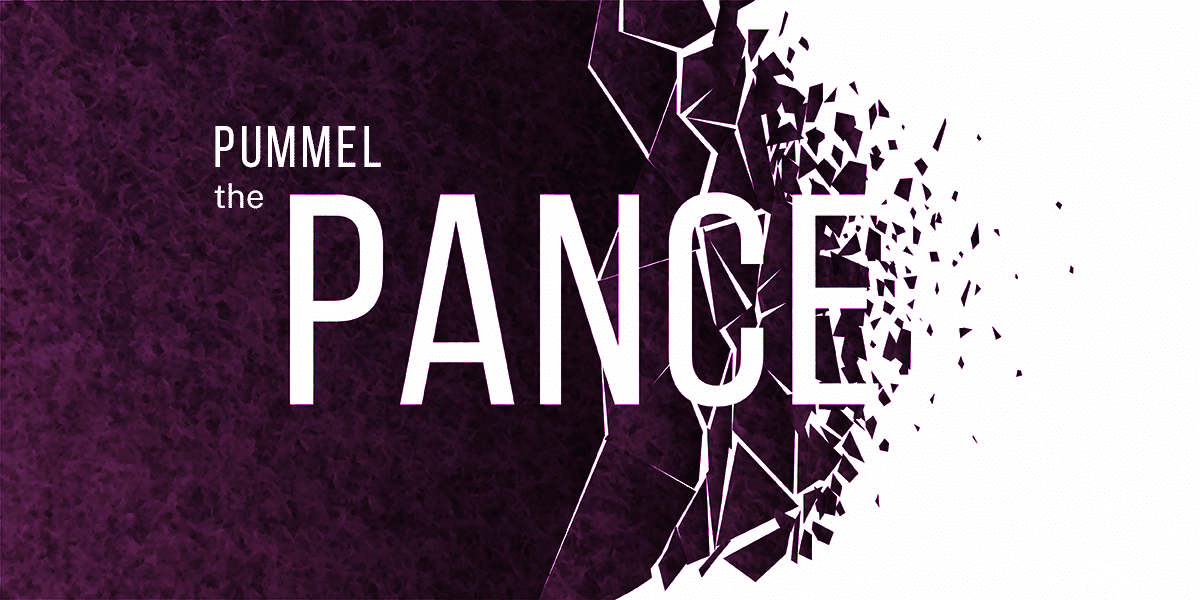How to Study for the PANCE Exam: 3 Tips I Used to Pass the PANCE

Nobody gets to be a certified PA just for having good bedside manners. If you don’t practice, you don’t pass your PA exams; as a historically poor test taker, this meant months of anxiety and stress leading up to the PANCE. I felt that no matter what method I was using, I couldn’t be sure it was enough to get me through the proverbial PANCE—the mecca of all PA exams that my classmates and I had been preparing for over 28 straight months.
Sadly, during rotation exams, I learned the hard way that simply “knowing” the information doesn’t mean you can pass the actual exam. It became clear that knowing how to take the test was equally as important. We’ve all heard this before, and it aggravated me to no end. If I knew “how to take the test” don’t you think I would be doing it?! No one could ever tell me what these secret test-taking skills were.
Rosh Review was the inflection point.
When I began using Rosh Review to practice for my rotation exams, my scores skyrocketed. I carried these three study tactics through to my PANCE review and they proved me well:
1. Subdivide your topics
In the 3–4 weeks leading up to the PANCE, after we finished our last rotation exam and summative skills examination, I methodically went through each subdivision of questions that I had the most trouble with, taking only up to 20 questions at once (I found that 25 was too many—I could focus just long enough to complete 20).
I noticed I learned the information best if I took each subdivision of topics at once, for example, taking all of the “arrhythmia” questions of the cardiovascular set, or “anemias” of the hematology set. This allowed me to compare questions, study what I didn’t know, and pick up patterns to understand what the question was looking for. This way, when I was taking a test of mixed topics, I was able to think to myself, “Okay, this is an arrhythmia question, so what are they looking for?” Without being able to identify what “bank” a question comes from, you can easily get tricked into a reasonable but incorrect answer.
2. Mix your topics and practice often
Each night after a day of studying, I would take a longer test of 100 mixed questions, including unused questions or ones I had previously gotten wrong. I created the exams in advance and blocked out time on my calendar to keep me on schedule. The week immediately before the PANCE, I took a practice exam of 125 questions every night.
To further supplement my test-taking practice, I downloaded Rosh Review on my phone and utilized it whenever I could. This included downtime on rotations, waiting for my oil to get changed, and before I went to bed at night instead of checking Instagram. All this repetition allowed me—for the first time—to detect patterns in questions and learn what the question writer was looking for.
In the study time when I wasn’t using Rosh Review, I preferred the high-yield study book PANCE Prep Pearls (PPP) by Dwayne Williams. This is a phenomenal tool that outlines the most relevant and high-yield information needed to answer PANCE questions. In a similar strategy to how I practiced Rosh Review questions, I would open PPP to a section on, say, arrhythmias, and study thoroughly. If I needed deeper information on pathophysiology or pharmacology I would reference a didactic lecture PowerPoint or my favorite website, Medscape. However, this was mostly for personal benefit and understanding—this type of minutiae does not typically appear in PANCE questions. Remember this as the clock is ticking toward test day: do not waste your time on tiny details. It is more important to get the big picture.
In general, I studied for about eight hours a day in the two to three weeks leading up to the PANCE. I tried to maintain a good eating and exercise schedule, and I spent most of my day at a coffee shop; studying at my apartment was too distracting. I brought along extra snacks so I wouldn’t have to leave to get food! I also put my phone away during study bouts because with each distraction it supposedly takes 17 minutes to regain focus. My studies felt much more effective if I focused for an hour with no interruptions and then took a small break before doubling down again.
3. Switch up your study material format
When reading was too exhausting, or if I couldn’t focus or was driving, cooking, or getting ready for bed, I would play different podcasts to pick up extra information. Medgeeks, PA Boards, and USMLE Step 1 and Step 2 podcasts were helpful just to keep my mind running. Even if I was exhausted, I hoped that deep in the subconscious of my brain I was learning by osmosis! OnlineMedEd was another favorite resource that I could listen to in the car or when I couldn’t sit still. Studying for the PANCE is grueling, but in these ways I felt productive, albeit minimally, even when I was most drained.
My study group and I scheduled our PANCE exam for the same date. We had spent the past 28 months studying with each other, so we wanted to be together as our efforts culminated! The last two days before the PANCE, we sat around a large table and went through the PAEA practice exams. We had taken them individually and then went over each answer together, explaining why the correct answer was right and why the others were wrong. We bounced ideas and questions off each other.
The PAEA practice exams were well worth the $50 each, as they gave me a good idea of my competency against an exam written by the same creators of the PANCE. Likewise, the supplemental Rosh Review tests are equally as helpful. I bought the family medicine test for my rotation exam and retook it before the PANCE. These are questions that don’t come up in the regular question bank.
Lastly, I rarely used the PANCE practice questions from books such as Kaplan, but what I did gain from the Kaplan PANCE study book was the test-taking advice that it lays out at the beginning. Again, as a poor test taker, this type of advice was equally as helpful as studying test content. I learned time-saving tips, tricks for what to do when coming across unknown material, and my favorite: repeating a mantra in the weeks leading up to exam day:
“I’m an intelligent person who reacts well under pressure.”
Although this all sounds like a lot, I effectively retraced my steps through everything I learned in PA school by studying methodically. Best of all, it worked!
Interested in joining a live course for accelerated PANCE review? The 4-day Rosh Review PANCE Review Course is now open for enrollment to help you earn a PANCE passing score on the first take!
Or, find out more information about Rosh Review’s PANCE review Qbank.
Pummel the PANCE Series shares the experiences, insights, and perspectives of PA students preparing for the PANCE. The goal of the series is to provide you with actionable information and key takeaways to help you not only prepare for but to excel on the PANCE exam.
These blogs might also interest you:
Why You’re Mentally Ready to Take the PANCE
The PANCE Study Plan They Don’t Teach You in PA School
PANCE Prep Tips
How to Increase Your PANCE or PANRE Score by 100 Points
Rosh Review, LLC is not sponsored or endorsed by, or affiliated with, the National Commission on Certification of Physician Assistants (NCCPA), Physician Assistant Education Association (PAEA), or the End of Rotation Exam™ (EOR). All trademarks are the property of their respective owners.





Comments (0)